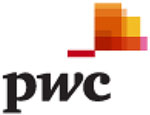LONDON, UK: Findings of a PwC survey on consumers' mobile broadband usage have found that mobile broadband operators risk losing revenue or failing to optimise network investments, because their data charges are unclear and because alternatives such as WiFi are becoming easier to access and are often free.
Nearly 50% of consumers polled don't know how much data they're actually using on a monthly basis, with 84% not knowing the real cost of going outside their data allowance. In combination, these factors are creating a fear of going over the data limits through over-use. 45% of consumers polled will restrict their usage to try to stay within their allowance.
Other findings further underline consumers' increasingly close attachment to private WiFi. Some 94% of respondents say private WiFi either meets or exceeds their expectations, against only 83% who say the same about mobile broadband. Public WiFi again comes third, with only 72% saying they are satisfied with it. Consumers find public WiFi services difficult to access - and even when they do manage to log onto them, they are wary of their data being hacked.
David Russell, telecoms partner at PwC, said: "With the growing availability and usage of WiFi in homes, workplaces and public spaces, the challenges for mobile broadband networks have extended beyond the 'data deluge' triggered by exploding take-up of smartphones to the management of this shift in connectivity.
"Where mobile operators can control this shift, they can manage network demand and optimise network investments but they must avoid consumers migrating valuable usage onto WiFi services provided by fixed-line and other specialist players."
The four key top-line findings around consumers' evolving usage of wireless broadband services are:
Consumer fear - Ignorance of usage and costs
Most consumers have a bundled data allowance with their mobile provider and are aware of their limits. However, they are ignorant about their own level of usage and the costs that are imposed for over-usage.
Consumer response - self-management of usage
Consumers' fear of incurring data charges of an unknown size means few users actually exceed their data bundles on a regular basis.
This fear is causing consumers to self manage their mobile data consumption, principally by limiting their usage via mobile broadband. The tactics they are using to do this include 'offloading' their traffic when possible to private WiFi networks that offers - in consumer eyes - a superior service. They are also offloading to a lesser extent to public WiFi.
Somewhat surprisingly, consumers rate private WiFi as better than mobile broadband even in terms of coverage.
Russell adds: "This may appear counter-intuitive, but it does underline consumers' emerging 'horses for courses' approach to wireless broadband access, where they pick and choose from among the different access methods and devices for different services."
Consumer behaviour - frequency and immediacy drive reliance
Consumers are getting used to setting up WiFi access on their devices and gain a sense of empowerment from their ability to manage their data usage across various different devices and connections. They don't feel themselves to be restricted by the limitations imposed by any individual service provider.
Consumer/ network relationships - pain points and opportunities
Users' reliance on mobile broadband access tends to be limited to those services requiring frequent and immediate access while they are out-and-about, such as email, web access, social media and apps. In contrast, they delay their usage of more data-heavy services such as media downloading to a point when time and location allow them to use WiFi.
Consumers have growing control over how, when, for what price and with whom they use their mobile devices. This shift in control is driving rising sophistication in their usage choices and consumption behaviours. Users are weighing up and trading off considerations of price and immediacy to identify the optimum utility and value from each combination of device, access method and service.
Russell concludes: "For mobile carriers, this change offers both challenges and opportunities. On the one hand, they risk losing traffic or market share to fixed and specialist providers offering WiFi services. On the other, those operators that can understand and anticipate how consumers will respond to new connectivity, data access and charging models stand to gain a clear competitive edge and make optimum use of expensive network resources.
"On the threshold of 4G, the world of consumer wireless broadband is changing fast. The question is - will operators be able to change quickly enough to keep up with and keep hold of their customers?"









